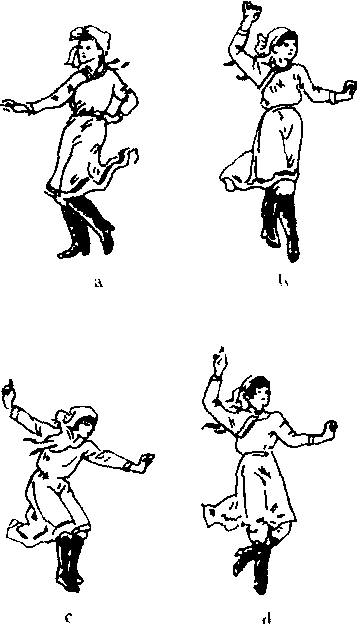维族舞的风格Weizuwu de fengge
开朗,奔放,有时也很幽默。舞蹈造型优美,挺拔,通过移颈,头部的摇动和多变的手腕动作再加上昂首挺胸,立腰等姿态,以及眼神的巧妙配合,表现不同人物的内心情感和人物性格。其基本动律为微颤、旁点和摇晃身体。作法是预备拍,双手叉腰,右腿为主力腿,左脚尖内侧旁(斜后)点地,右腿膝关节微屈,同时左脚尖离地,身体重心下沉,动作时前半拍,左腿膝关节直立,同时左脚尖点地,身体重心上移。后半拍右腿膝关节微屈,右脚尖离地。摇身时身体略有左右摆动感,但基本动律仍是身体重心上下的移动,要内在,富有弹性,强拍时,要伸慢,弱拍时,脆而快。音乐特点是曲调活泼,愉快,开朗,幽默,切分节奏运用的较多。有的休止符在乐曲中形成明显的动与静的对比。达到动中有静,静中有动的效果。常用的主要节奏型:![]()
![]()
